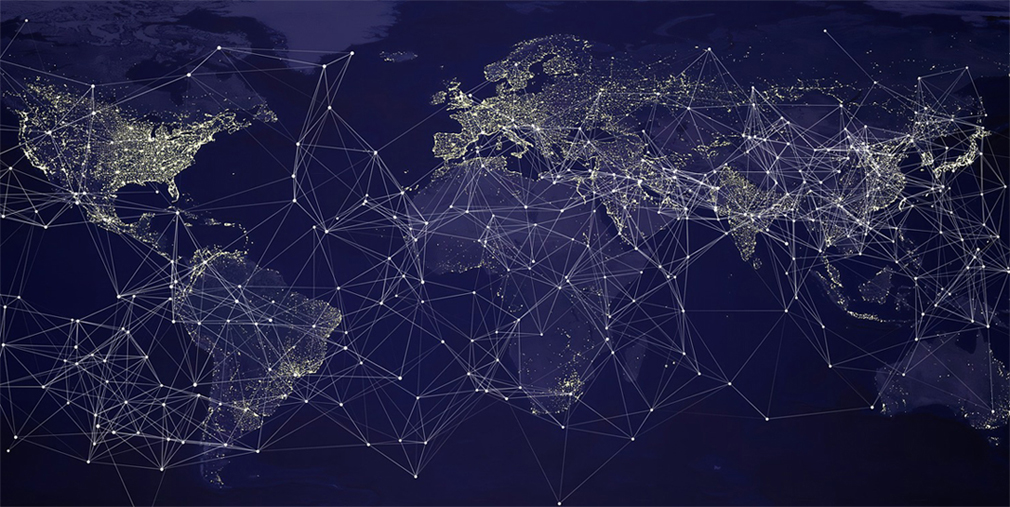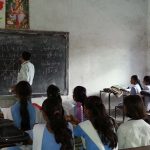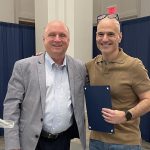Former United Nations Secretary-General Kofi Annan once said, “Knowledge is power. Information is liberating. Education is the premise of progress, in every society, in every family.”
And yet, many are not empowered, liberated, or able to progress because they do not have sufficient access to knowledge. That this is so is unacceptable. Those of us working in institutions charged with creating and disseminating knowledge and enhancing integral human development bear a special responsibility to help ensure the free flow of ideas, solutions, and evidence.
In their book Creating a Learning Society, Joseph Stiglitz and Bruce Greenwald note that access to knowledge is key to learning and to the growth of more knowledge; they argue that a gap in knowledge is what separates developing from developed countries—even more than a gap in resources. A World Bank report, which characterizes knowledge as the conduit through which solutions travel, reinforces the view that knowledge is the difference between countries that make progress in addressing human needs and those that fall behind.
Unlike other resources that are depleted when used or consumed, knowledge can be shared infinitely.
Within the framework of integral human development, knowledge is considered one of several fundamental assets that allow people to generate livelihoods and weather crises and shocks. Knowledge is, in fact, an invaluable resource. But unlike other resources that are depleted when used or consumed, knowledge can be shared infinitely. One person acquiring or making use of knowledge does not prevent another from also doing so. This characteristic of knowledge is part of what makes it a public good. An oft-cited example is oral rehydration therapy as a solution to prevent children from dying of diarrhea/dehydration in developing countries. Now that the knowledge to address the problem exists, it can be used over and over to save children; it is not depleted by use.
Another characteristic of a public good is that it should be difficult to exclude anyone from accessing or using it. Clean air is an example of a public good. Public parks are another. It is this “nonexcludable” aspect of knowledge as a public good that merits attention. In the current global knowledge system, access to knowledge is not universal; research, for example, is frequently hidden behind paywalls and strict intellectual property regimes. Or it is infrequently translated or disseminated in ways that make it truly accessible. This, in fact, makes knowledge an “impure” public good because some people are excluded from it. The open-access and open-data movements have made significant advances in recent decades; even so, it has taken something as dramatic as the COVID-19 pandemic in order for some publishers to make research about the virus freely available.
This is not right. To ensure that people can be empowered and liberated, we must strive to make the knowledge we produce a global public good—available to anyone anywhere in the world who can benefit from it. In that way, we will take a great step toward “doing good” and ensuring progress both in rich and poor countries. This is not a small undertaking. But we can all do our part to ensure that information is not valued for being scarce, but for being plentiful.
What follows are suggestions for actions that individual researchers and knowledge institutions (such as universities, think tanks, development agencies, foundations, etc.) can take.
Researchers
- Develop relationships—with potential co-producers of knowledge, with the target audiences for your work and other beneficiaries, with communities of practice and knowledge networks, and with funders, policy influencers, practitioners, and decision makers. These relationships will contribute to knowledge generation, dissemination, use, and impact.
- Make your scholarly work as accessible as possible. Search for open access publishing/funding opportunities (including special open access publication “windows”) for scholarly work. Deposit preprints in an institutional repository.
- Find ways to translate your scholarly work into more accessible outputs. These may include blog posts, briefs, case studies, data visualizations, fact sheets, infographics, news articles/interviews, op-eds, podcasts, posters, presentations, radio segments, social media posts, training sessions, videos, webinars, workshops, etc. The further that knowledge can travel, the likelier it will reach someone who can benefit from it.
- Tap into any institutional support or funding opportunities that may exist. For example, ahead of a research project, meet with institutional communicators or knowledge brokers to develop impactful dissemination plans that include some of the translational work mentioned above. Apply for grants that may cover time spent building relationships or engaging in translational work.
Knowledge institutions
- Develop and implement Open Access policies, such as this one adopted by the University of California.
- Incentivize not just the production of knowledge, but efforts to enhance its impact. Reward those who spend time building relationships of trust, who translate knowledge and make it more accessible, and who use that knowledge to help build capacity, increase participation, and effect change.
- Seek funding for grants to cover relationship building, open access fees for scholarly work, the production of “translated” knowledge outputs, and training for knowledge producers and disseminators endeavoring to translate scholarly work and increase its impact.
- Create internal systems to better understand the impact of the knowledge being produced across the institution.
Successful development depends on making knowledge accessible to all, something that particularly resonates during this year’s International Open Access Week. As the nineteenth-century journalist and women’s rights advocate Margaret Fuller said, “If you have the knowledge, let others light their candles in it.” This is not a new premise. But in an age of globalized crises that require coordinated and timely responses across national boundaries, it is an increasingly urgent one.
Gwendolyn Stansbury is program director of knowledge management in the Keough School of Global Affairs at the University of Notre Dame.
This article is part of a series of blog posts published by the Keough School of Global Affairs. Dignity and Development provides in-depth analysis of global challenges through the lens of integral human development.



